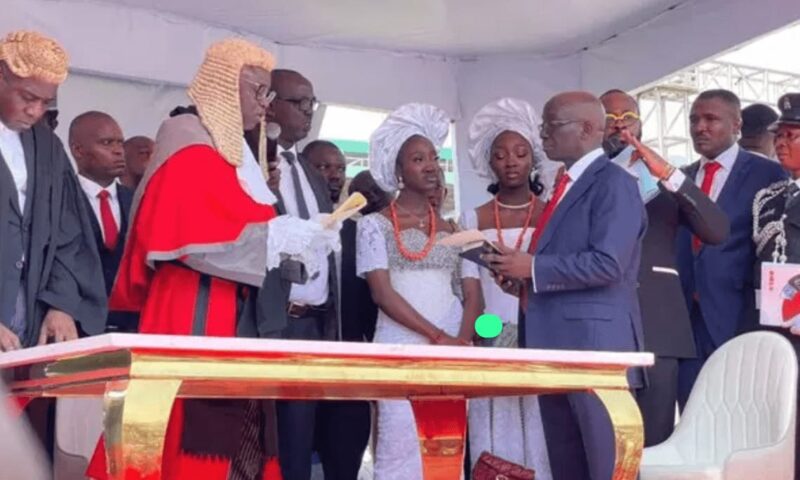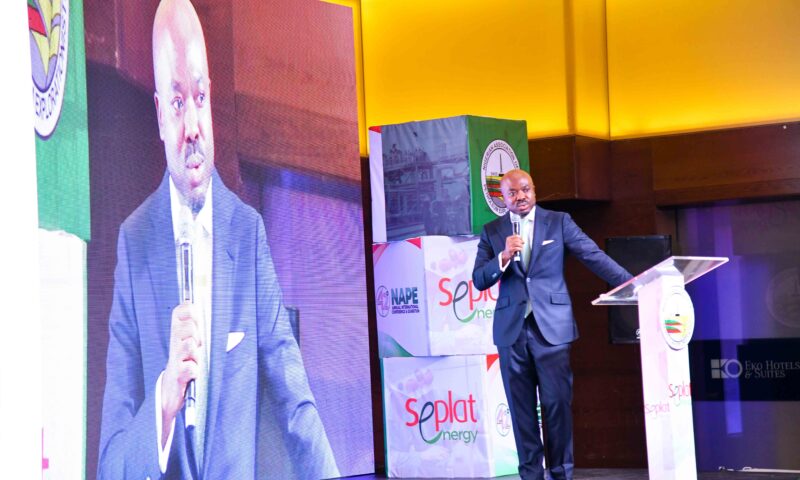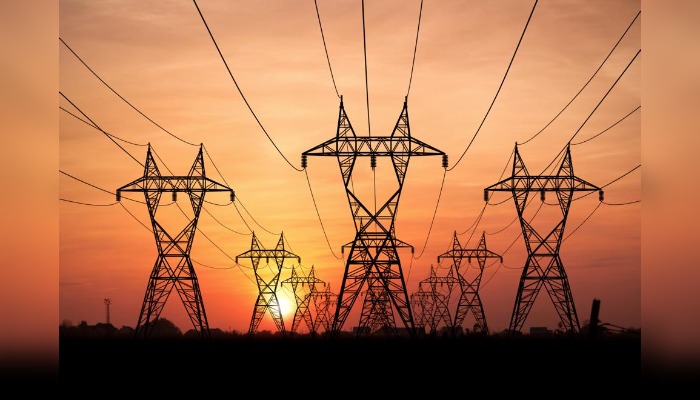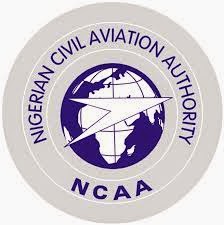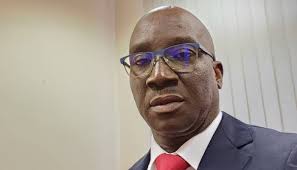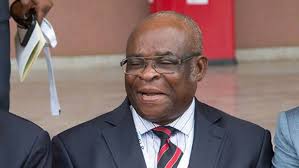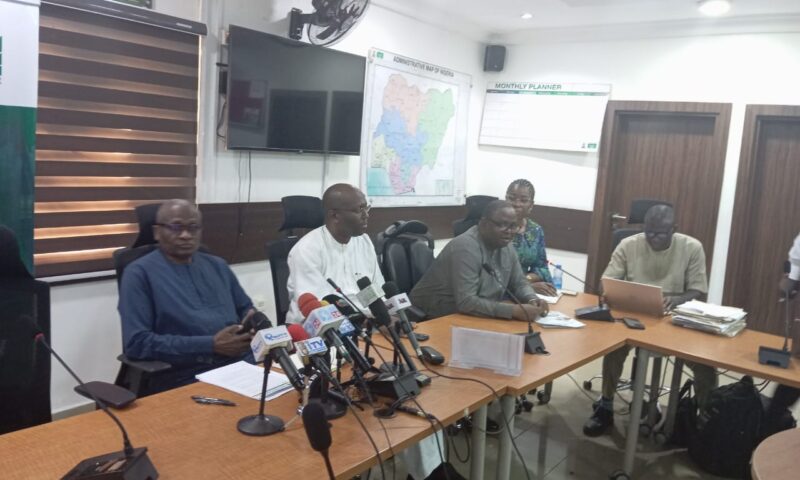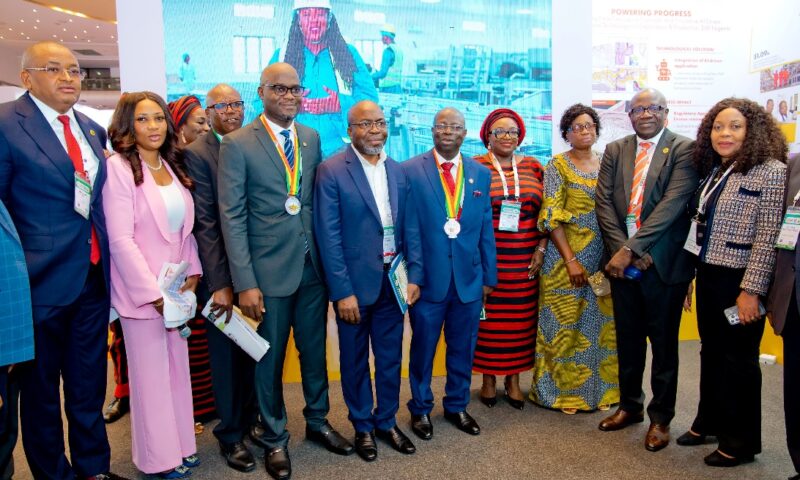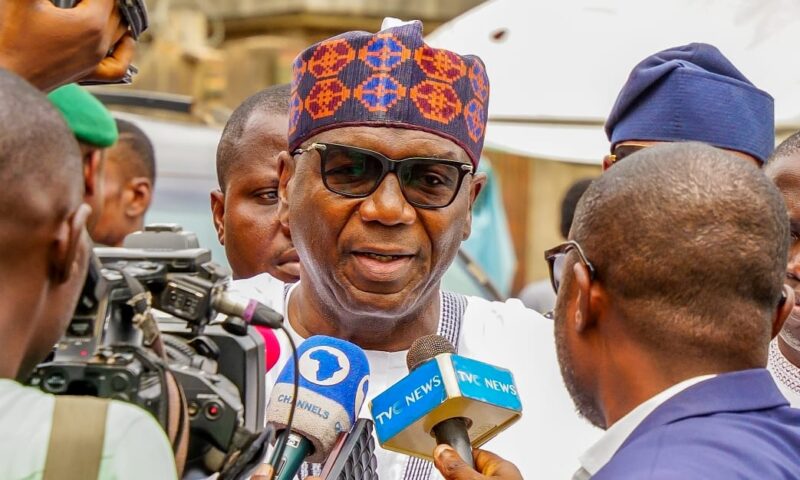By Prof. Mike A. A. Ozekhome
“Freedom is never voluntarily given by the oppressor, it must be demanded by the oppressed” (Martin Luther King, Jnr).
Justice Walter Onnoghen who was unfairly disgraced out of office presumably as a crook by former dictator President, General Muhammadu Buhari, has just demonstrated this apophthegum through three appeals, namely CA/A/375/2019; CA/A/37/SC/2019 and CA/373C/2019.
He valiantly fought for his freedom through these three appeals against his April 18, 2019 outrageous conviction which was schemed by Buhari and his kitchen cabinet to humiliate Onnoghen out of the Bench so as to make CJN, his preferred candidate (Justice Tanko Mohammed), CJN (rtd.) on the eve of the 2019 presidential election.
Buhari knew he had performed dismally and would be rejected at the polls by angry and hungry Nigerians. So he went Judge-shopping. The rest as they say is history. The legal saga of Justice Walter Onnoghen is not just the story of one man’s acquittal, but a larger commentary on the poor state of Nigeria’s judiciary and the ever-present tensions between political power wielders and judicial independence.
It is a story fit for a Grammy Award movie. His acquittal on 4th November, 2024, by the Court of Appeal in Abuja, marked a significant chapter in Nigeria’s legal history, casting a powerful shadow of doubt and curious spotlight on the principles of separation of power, due process, the sanctity of judicial independence and the perils inherent in political intervention.
The appeal that restored Justice Onnoghen’s hard-earned reputation and returned his assets to him is also a profound testament to the importance of procedural integrity and jurisdictional boundaries in any democratic society.
I had the opportunity in the nineties to appear before the brilliant Judex while he was a High Court Judge of the Cross River State Judiciary, Calabar.
I know he was a man of integrity and character. During the infamous Onnoghen’s trial by ordeal, I made many interventions. In one, I said:“A strong judiciary is one of the irreducible fundamental platforms for any meaningful constitutional democracy. If you terrorise, intimidate, harass and humiliate the judiciary, using strong hand and brute force, it is a stage set for bidding democracy farewell”- Mike Ozekhome, SAN(https://dailytrust.com/ozekhome-charges-judiciary-to-shut-down-courts-over-onnoghen/). (13th January, 2019).
In a world where the judiciary stands as the final arbiter of justice, Justice Onnoghen’s story is one of a victim who faced unprecedented tribulations, endured a long agonising path to redemption.
He ultimately emerged victorious. The appeal process that culminated in his acquittal is a reminder that justice may sometimes be delayed, but it can never be forever denied.
How The Appeal Court Acquitted Onnoghen
The verdict by the Court of Appeal represented a turning point in a legal drama that had captivated Nigerians and raised profound questions about the nature and quality of justice in the country.
On the 4th of November, 2024, a three-member panel led by Justice Abba Mohammed ruled in favour of the ex-CJN, Walter Onnoghen, acquitting him of the charges initially levied in 2019 by the Code of Conduct Tribunal (CCT) in 2019.
This decision not only vacated the earlier conviction but also ordered the unfreezing of all his bank accounts, thus restoring his financial freedom that had been denied him since the controversial trial began.
I have been overwhelmingly vindicated in all my angst and ventilations against the victimhood suffered by Onnoghen.
Hear me:“The CJN can be removed from office either if he has been convicted or if under section 291 of the constitution, the Senate affirms a request by the President to remove him by two-third majority vote” – Prof. Mike Ozekhome, SAN (https://www.pulse.ng/news/politics/mike-ozekhome-reacts-to-allegations-against-cjn-onnoghen/zdx9del).(12th January, 2019).
The acquittal judgement was predicated on a legal principle central to the Nigerian jurisprudence which articulates around jurisdiction. The Court of Appeal asserted that the CCT had no authority in the first instance to try and convict Justice Onnoghen having not passed through the National Judicial Council (NJC).
This oversight,the appellate court argued,rendered the entire proceedings null and void. This requirement had been emphasized in Nigerian case law with decisions such as FRN v. NGANJIWA (2022) LPELR-58066(SC) and OPENE v. NJC & ORS (2011) LPELR-4795(CA), which clearly emphasise that judicial officers must first be vetted by the NJC before facing any criminal trial by a tribunal or court.
This process is designed to protect the judiciary and its judexes from strong-hand politicians and political interference, thus ensuring that judges are treated with the respect, dignity and due process that their offices richly deserve.
I had angrily queried:“…Our system of justice being Anglo-Saxon based, which is accusatorial, meaning that the innocence of a person is presumed. It is different from the criminal justice system of the French model which is inquisitorial,wherein the guilt of an accused person is presumed. This doctrine has been encapsulated in section 36 of the 1999 Constitution, as amended, that the person’s innocence is presumed until he has been proven guilty.
“Assuming for example that Senator Bukola Saraki had been forced to resign his office when charges were brought against him before the same Code of Conduct Tribunal almost three years ago, what would have happened and what would have been his fate when the Supreme Court eventually discharged and acquitted him of the charge,following judgements and earlier order of the Court of Appeal and the Code of Conduct Tribunal itself?
“If you ask me, I sense serious political undertones oozing from this so-called imminent arraignment of the noble CJN.
Question,when did they discover the alleged offence for which they now want to charge him on Monday? Was it just yesterday, was it last week, two weeks or six months ago? The CJN has been in office now for well over one year, how come that this misconduct or whatever offence that he is being alleged, was not seen up to now? How come, that it is just less than 40 days to the 2019 Presidential election, when the CJN is going to play the major role in constituting the Presidential election petition tribunal, that he is being moved against? Who is afraid of the Judiciary? Who is afraid of Justice Onnoghen and his impartiality and straightforwardness? How come we are reducing governance in Nigeria to one of impunity, one of despotism and one of absolutism. Don’t this people know that the world is laughing at us?
“Did we not see how Dino Melaye was yanked out from police hospital and taken to DSS quarters when he had no business or case with the DSS and DSS had no case against him. Did they not see Dino Melaye, a serving Senator of the Federal Republic of Nigeria, sleeping in the open yesterday? Do they go on social media and do they watch international televisions? Do they know how the whole world is deriding us in this country?
“That governance has been reduced to mere witch-hunt, very opaque, very unaccountable, very un-transparent and very very fascist! Can’t they see that?”- Prof. Mike Ozekhome, SAN (https://www.pulse.ng/news/politics/mike-ozekhome-reacts-to-allegations-against-cjn-onnoghen/zdx9del). (12th January, 2019).
My intervention as far back as 2019 served as a reality-check, pointing out that removing a Chief Justice can never be a whimsical decision; it is bound by the checks and balances that keep our justice system watered.
My then reference to “impunity, despotism, and absolutism” hit like a huge hammer, evoking the imagery of a judiciary under siege of political transaintionists.
By drawing parallels with then Senators Saraki and Dino Melaye’s own public tribulations, I attempted to paint a vivid picture of a prostrate justice system afflicted by power jackbootism.
Justice Onnoghen’s acquittal is a clear victory for judicial integrity, independence and an affirmation that the judiciary cannot be used as a pawn on political chessboards. The ruling also reinforces the fact that procedural lapses, especially in matters bordering on citizens right and high-ranking judicial officers, are unacceptable and grossly violate the principle of fair trial.
As the Bible counsels in Proverbs 31:9, “Speak up and judge fairly; defend the rights of the poor and needy.” This verse captures the essence of due process, emphasizing that justice must be dispensed with fairness and respect for established procedures.
I did not mince words then in condemning the executive lawlessness unleashed on Onnoghen:”It must be pointed out that this latest step by the CCT… appears to be teleguided by the dictatorial Executive, especially the presidency” – Prof. Mike Ozekhome, SAN (https://dailypost.ng/2019/02/13/ozekhome-gives-nine-reasons-cct-arrest-order-onnoghen-cannot-stand/).(14th February, 2019).
The ugly circumstances surrounding Justice Onnoghen’s initial trial and conviction by the CCT underscore the potential dangers when procedural norms are bypassed.
My passionate critique of the dastardly role played by the Buhari-led administration from 2015 to 2023 as regards Onnoghen’s trial by ordeal revealed the high stakes which were at play. By overstepping the NJC, I had warned then that unchecked executive power could encroach upon the independence of the judiciary which will ultimately undermine the very foundation of democracy.
The Precedent Of Jurisdiction And Judicial Independence
Justice Walter Onnoghen’s acquittal by the Court of Appeal is not just a victory for one individual, but a landmark affirmation of a fundamental principle of law,that jurisdiction is the bedrock of any valid legal proceeding.
Without proper jurisdiction, any judgement rendered is, as many legal scholars have agreed on, will merely be an exercise in futility. This principle is enshrined in our legal jurisprudence to protect the sanctity of judicial offices and prevent arbitrary persecution.
The Court of Appeal’s decision to vacate Justice Walter Onnoghen’s conviction reaffirmed this core legal tenet, sending a clear message that the judiciary is not a toothless bulldog and tool to be wielded by the executive or any other arm of government.
“Injustice anywhere is a threat to justice everywhere” – Martin Luther King Jr. The Nigerian legal framework, supported by landmark cases such as FRN v. NGANJIWA (Supra) and OPENE v. NJC & ORS (Supra), outlines that the NJC must first investigate and make recommendations regarding any allegations against judicial officers before any trial can commence at the CCT.
This process serves as a bulwark against arbitrary trials, ensuring that judges are not subjected to undue pressure or political intimidation.
I had also then warned about the dangers posed whenever these procedural safeguards are disregarded:“The CCT was unrelenting: it discarded its earlier precedents; ignored court rulings barring it from trying Onnoghen. It was the case of the falcon not hearing the falconer”- Prof. Mike Ozekhome, SAN (https://www.thecable.ng/ozekhome-onnoghen-resigned-because-the-cabal-had-sealed-his-fate/). (6th April, 2019).
Thus, five years ago (2019), I was nothing short of prophetic.I had foreseen the critical blunders and overreaches that would compromise the integrity of the judiciary in the Onnoghen saga.
My warnings were very clear then about the dangerous precedent that was being set in bypassing due process and using the judiciary as a tool for political manoeuvring. As events have now unfolded, my observations then have proven me to be a visionary critic who critiques (not criticises) a justice system that was then on the brink.
I had cautioned against the erosion of judicial independence in the face of executive influence. I had given nine reasons why the CCT’s arrest order on and trial of Justice Onnoghen could not stand.See: (https://dailypost.ng/2019/02/13/ozekhome-gives-nine-reasons-cct-arrest-order-onnoghen-cannot-stand/).
My list was not just a check-list of procedural irregularities; it was also an indictment of a system seemingly hijacked by political buccaneers. Each point landed like a blow, revealing layers of oversight that were by-passed; up to the requirement for humane treatment under the ACJA that was ignored.
I meticulously built my case, demonstrating that Onnoghen’s trials were not just about one man, but about the sanctity of the judicial process itself. It was persecution, not prosecution.
My vivid metaphor of the then CJN being “mob-lynched,” painted a grotesque picture of a judiciary cornered by hidoues forces intent on humiliation rather than achieving justice.
Justice Onnoghen’s acquittal by the Court of Appeal thus serves as a reaffirmation of judicial independence, reminding all branches of government that the rule of law cannot be compromised for political expediency.
As the Bible says in Psalm 82:3,“Defend the weak and the fatherless; uphold the cause of the poor and the oppressed.”
These words resonate deeply in the context of Onnoghen’s trial, encapsulating the judiciary’s duty to protect the innocent from unwarranted persecution and uphold the principles of justice.
Political Undertones And The Quest For Judicial Autonomy
Justice Walter Onnoghen’s journey from indictment to acquittal reflects a deeper narrative about the political undertones that permeated his trial. His suspension by then President Muhammadu Buhari which took place only weeks before the 2019 presidential election, had raised significant concerns about the timing and motivations behind the charges.
Many saw it as an attempt to influence the judiciary ahead of a critical election, a sentiment I shared and eloquently captured in “Onnoghen… knew that his fate had been pre-determined by the cabal, signed, sealed and delivered”- Prof. Mike Ozekhome, SAN (https://www.thecable.ng/ozekhome-onnoghen-resigned-because-the-cabal-had-sealed-his-fate/). (6th April, 2019)
The timing of the charges,as well as the swiftness with which Onnoghen was brought to trial, laid validation to public perception that Justice Onnoghen was merely targeted for his position and influence within the judiciary.
Like I put it then, “Many facts bear this simple deduction out. The petitioner, an NGO, actually committed the Freudian slip by anchoring its petition on ‘bearing in mind the imminence of the 2019 general elections’” – Prof. Mike Ozekhome, SAN (https://dailytrust.com/ozekhome-charges-judiciary-to-shut-down-courts-over-onnoghen/). (13th January, 2019).
The Bible,in Proverbs 21:15, declares, “When justice is done, it brings joy to the righteous but terror to evildoers.”
The acquittal of Justice Onnoghen,in this light,is therefore not just a personal victory but a broader triumph for all who value justice and integrity.
Like I noted then,“Justice Onnoghen’s removal was also an attempt by the executive arm of government to have a firm control of the nation’s judiciary”- Prof. Mike Ozekhome, SAN (https://dailypost.ng/2019/02/13/ozekhome-gives-nine-reasons-cct-arrest-order-onnoghen-cannot-stand/).(13th February, 2019).
Ultimately,Justice Walter Onnoghen’s acquittal is a landmark victory for judicial independence and a testament to the enduring principles of justice and due process. His journey from indictment to acquittal serves as a potent reminder that the rule of law must remain inviolable, even in the face of political pressures.
Onnoghen’s case will remain a watershed moment in Nigeria’s legal history, a vivid reminder that the judiciary’s role is to safeguard the rule of law, protect citizens’ rights and ensure that democracy even when faced with formidable forces of political influence, triumphs.
It should be able to skillfully navigate through the ever present interplay of centripetal and centrifugal forces.
As Nigeria continues to evolve as a work-in-progress, Justice Onnoghen’s exoneration stands as a powerful reminder to us all that, in the words of Proverbs 21:3, “To do what is right and just is more acceptable to the Lord than sacrifice.”
Congratulations, Milord. Enjoy your hard won-back integrity, honour and dignity.


